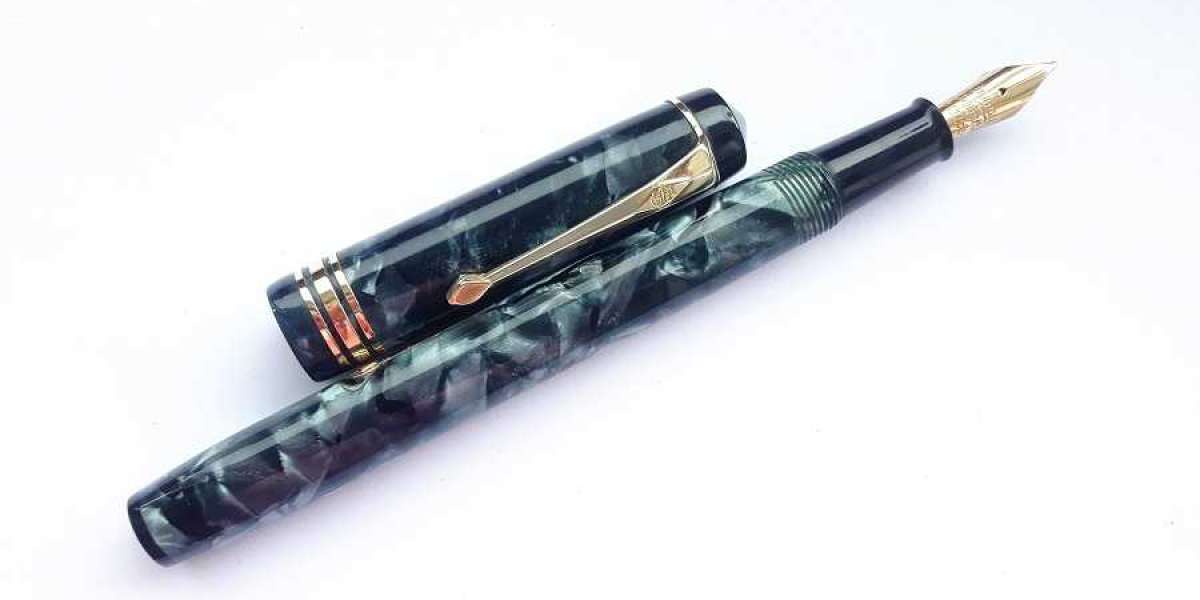The Conway Stewart Fountain Pen holds a special place in the annals of writing history. Synonymous with sophistication, craftsmanship, and British heritage, it is more than just a tool for writing. Since its emergence in the early 20th century, this fountain pen has captured the imagination of writers, collectors, and aficionados across the globe. Revered for its elegance and precision, the Conway Stewart brand became a symbol of status and intellect, influencing generations through design and performance. From the desk of statesmen to the hands of literary figures, the legacy of this pen goes far beyond ink on paper.
Origins Rooted in British Craftsmanship
Conway Stewart was founded in 1905 by Frank Jarvis and Thomas Garner in London. Their mission was clear: to create beautiful and functional writing instruments that reflected the refined tastes of the British public. They succeeded by combining aesthetic appeal with practical innovation. The early models quickly became favorites among professionals, thanks to their reliability and refined design. As the company grew, it stayed true to its principles of craftsmanship, using high-quality materials and intricate detailing that helped set it apart from competitors in the flourishing pen industry.
From Utility to Symbol of Status
What truly elevated the Conway Stewart Fountain Pen from a practical writing tool to a cultural symbol was its association with prestige. As the brand gained popularity, it found favor in academic, political, and literary circles. British Prime Ministers and notable authors were known to own and use Conway Stewart pens. The brand didn’t just appeal to function; it became a reflection of one's personal style and societal standing. A Conway Stewart pen wasn’t merely carried—it was displayed, cherished, and passed down through generations.
Influence in Literature and Media
Throughout the 20th century, the Conway Stewart Fountain Pen made numerous appearances in novels, films, and television shows, reinforcing its cultural relevance. It was often used as a visual cue to denote intelligence, refinement, or authority. Writers admired its balance and nib quality, which made long hours of writing a more pleasant experience. Some authors even cited their Conway Stewart pen as a muse for creativity. These media appearances helped to entrench the pen's identity as more than an object—it became part of the narrative.
Design Evolution and Limited Editions
Another factor in the cultural rise of the Conway Stewart brand lies in its ability to evolve with time while maintaining its classic appeal. The company introduced a range of models with varied finishes, colors, and nibs, catering to the changing tastes of its clientele. Particularly noteworthy are the limited edition collections that paid homage to historical figures or commemorated significant events. These editions became highly collectible, often commanding premium prices in the market. The attention to detail in these models only reinforced the brand’s reputation for excellence.
Resurgence and Enduring Appeal
Although the original company ceased operations in the 1970s, the brand saw a revival in later decades, reaffirming its cultural importance. Enthusiasts and collectors played a vital role in keeping the legacy alive, fueling a renewed interest in handcrafted writing instruments. The revived Conway Stewart brand embraced modern technology while staying rooted in its traditional values. Today, the pen appeals to a new generation that appreciates craftsmanship, history, and the tactile pleasure of writing with a fountain pen.
Conclusion: An Icon Inked in Time
The journey of the Conway Stewart Fountain Pen from a modest British brand to a global cultural icon is a testament to its enduring charm and quality. It has transcended the realm of stationery to become a symbol of elegance, intellect, and heritage. Whether displayed in a collector’s cabinet or used to draft personal thoughts, the pen continues to inspire reverence and admiration. As long as people value the art of writing, the legacy of Conway Stewart will remain etched in history.







